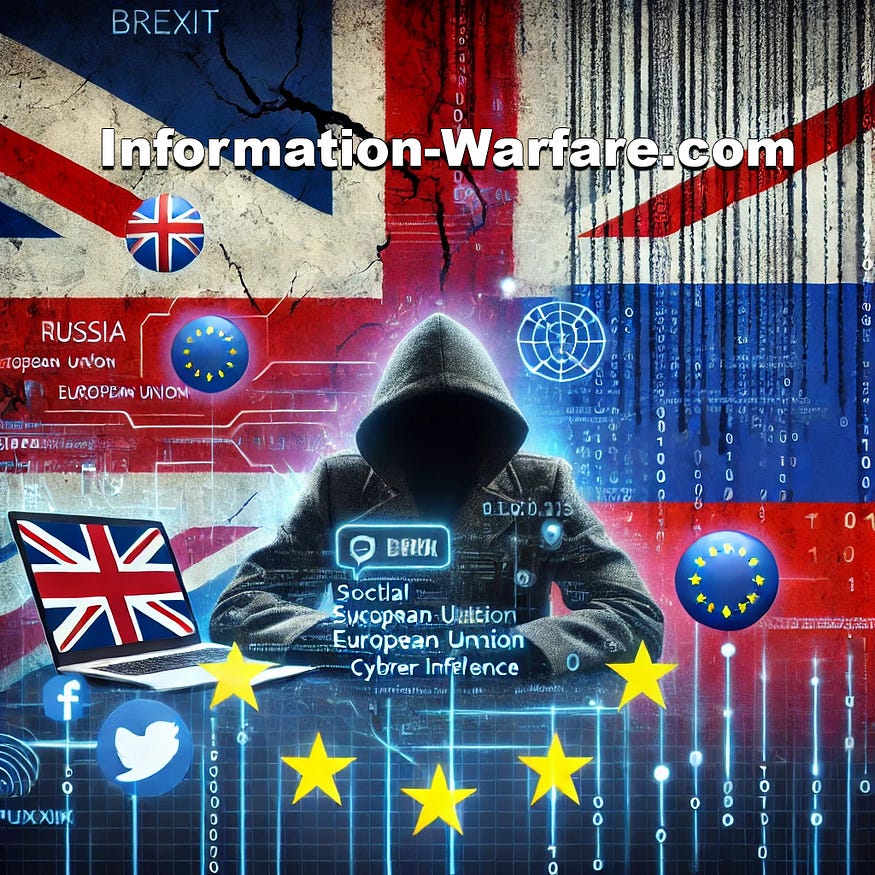Russia’s Role in Brexit
The Geopolitical Implications of Brexit
The Brexit referendum in 2016, which resulted in the United Kingdom voting to leave the European Union, was a significant geopolitical event with far-reaching consequences. While various domestic factors influenced the outcome, there has been substantial speculation and evidence suggesting that Russia played a covert role in influencing the referendum. This article explores the extent of Russian involvement in Brexit and its broader geopolitical implications.

Russian Interference in Brexit
Information Warfare: Russia has been accused of using information warfare tactics to influence the Brexit vote. This involved the spread of misinformation and disinformation through social media platforms. Russian-backed entities allegedly disseminated content designed to exacerbate divisions within the UK, promoting narratives that would sway public opinion in favor of leaving the EU.
Funding and Support: Investigations have suggested that Russian money may have been funneled into various pro-Brexit campaigns. While direct evidence of large-scale funding remains elusive, the financial support of individuals and groups with ties to Russia raises concerns about undue foreign influence in the referendum process.
Cyber Attacks: There have been allegations of cyber attacks linked to Russian hackers aimed at disrupting the electoral process. These cyber activities are part of a broader strategy to weaken Western democracies by undermining public trust in democratic institutions.
Geopolitical Implications of Brexit
Weakened European Union: Brexit has significantly impacted the unity and strength of the European Union. The departure of one of its largest and most influential members has led to uncertainties and potential instability within the EU. This weakening of the EU serves Russia’s interests by reducing the bloc’s ability to counteract Russian geopolitical ambitions.
Shift in Global Alliances: Brexit has prompted the UK to seek new trade deals and alliances outside of the EU. This shift provides opportunities for Russia to establish stronger bilateral relations with the UK, potentially influencing British foreign policy in ways that align with Russian interests.
Increased Regional Tensions: The Brexit vote has reignited discussions about Scottish independence and the status of Northern Ireland. These internal divisions within the UK can be exploited by external actors, including Russia, to further destabilize the region.
Impact on NATO: As a key member of NATO, the UK’s departure from the EU raises questions about the future of transatlantic security cooperation. Any weakening of NATO’s cohesion benefits Russia by diminishing the effectiveness of the alliance in countering Russian military and strategic actions.
Conclusion
The role of Russia in the Brexit referendum highlights the complex nature of modern geopolitical conflicts, where traditional military strategies are supplemented by cyber warfare, information manipulation, and financial influence. The broader implications of Brexit extend beyond the UK’s relationship with the EU, affecting global alliances, regional stability, and the balance of power in Europe.
Understanding the extent of foreign interference in democratic processes is crucial for safeguarding the integrity of future elections. As nations grapple with the challenges posed by information warfare, it is imperative to strengthen democratic institutions, enhance cybersecurity measures, and promote media literacy to mitigate the impact of foreign influence.
The geopolitical landscape continues to evolve, and the lessons learned from Brexit will shape how democracies defend against external threats in the digital age. The ongoing struggle to maintain sovereignty and democratic integrity in the face of foreign interference underscores the importance of vigilance and resilience in an interconnected world.

